Summary: Fukushima people oppose the Japanese government’s decision to start discharging nuclear polluted water into the sea.
Xinhua News Agency, Fukushima, Japan, August 23rd Summary: Fukushima people oppose the Japanese government’s decision to start discharging nuclear polluted water into the sea.
Xinhua news agency reporter
The Japanese government decided on the 22nd, as long as the weather and marine meteorology are fine, the nuclear polluted water from the Fukushima Daiichi nuclear power plant will be discharged into the sea on August 24th. From 22nd to 23rd, several residents of Fukushima Prefecture were interviewed by Xinhua News Agency, condemning the Japanese government and Tokyo Electric Power Company for violating their original commitment not to dispose of nuclear polluted water without authorization, and reiterating their firm opposition to the discharge of nuclear polluted water into the sea.
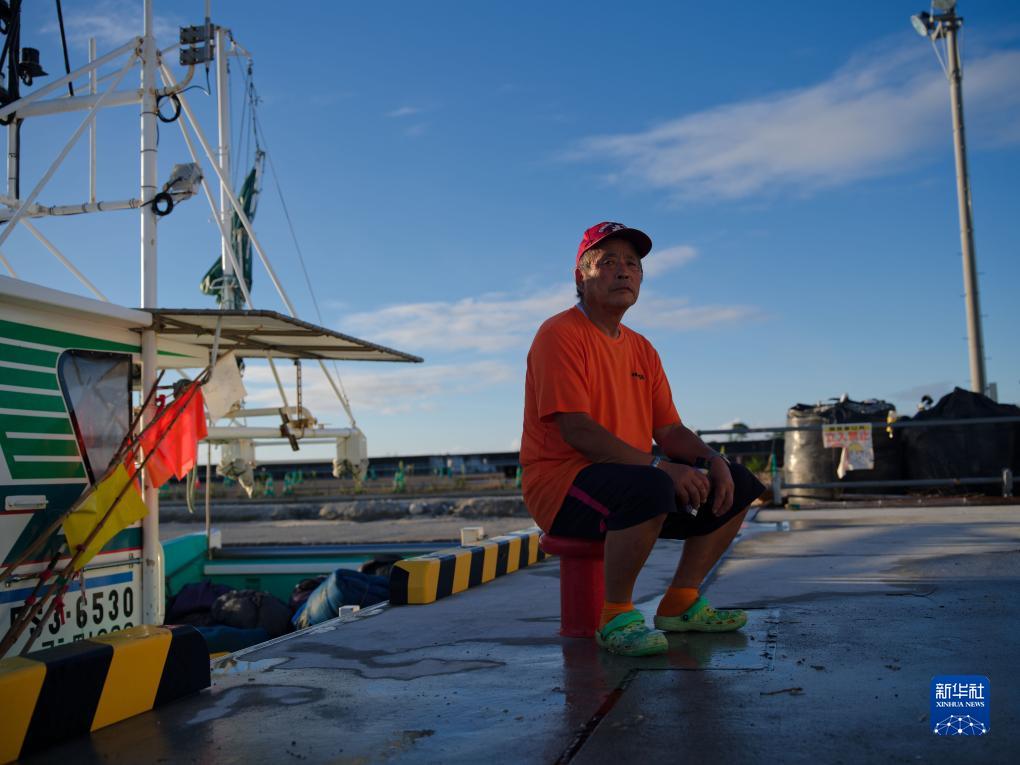
On August 23, Xiao Ye Chunxiong, who returned from fishing, sat in the fishing port of Xindicho, Fukushima Prefecture. Xinhua News Agency reporter Zhang Xiaoyu photo
Xiao Ye Chunxiong, a 71-year-old fisherman in Xindicho, Fukushima Prefecture, told Xinhua News Agency on the 22nd: "Discharging the sea is a matter of survival for us. We have endured it and endured it for 12 or 13 years, and we have not recovered to ‘ 3·11’ The fishing level before the earthquake, under such circumstances, does kishida fumio, as the Japanese Prime Minister, have the right to pollute our workplace? "
Xiao Ye Chunxiong said that after the 2011 earthquake, wholesalers in Tsukiji Aquatic Products Market in Tokyo were reluctant to purchase fish from Fukushima. Fishermen in Fukushima worked hard for more than 10 years, and it was not until two years ago that the price of seafood from Fukushima recovered to be higher than that before the earthquake. At this time, "if it is discharged, are we worried that fish can still be sold?" Moreover, nuclear polluted water can not be discharged in one year or two, and will continue to be discharged for a long time. "
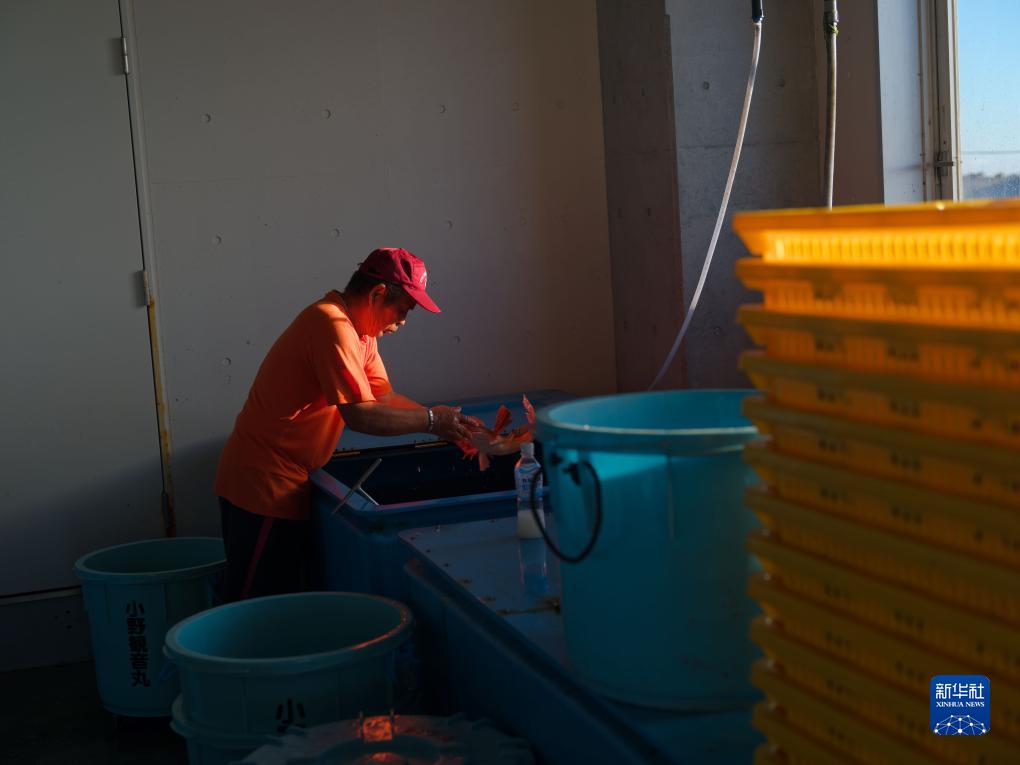
On August 23, Xiao Ye Chunxiong, who returned from fishing, handled the caught fish at the fishing port of Xindichong, Fukushima Prefecture. Xinhua News Agency reporter Zhang Xiaoyu photo
Chiyoda Oda, who lives in Iwaki City, Fukushima Prefecture, told Xinhua News Agency by e-mail on the 22nd that the Japanese government hastily decided to discharge the sea, violating its promise. "This is an atrocity that was promoted under the condition of insufficient explanation to the people."
Nishi Nishi runs a hot spring hotel with a history of more than 300 years in Iwaki City, Fukushima Prefecture. He told reporters on the 23rd that about 70% of the hotel guests originally came from Tokyo, but after the nuclear accident, the number of guests from other places decreased, making it even more difficult for foreign tourists to see them.
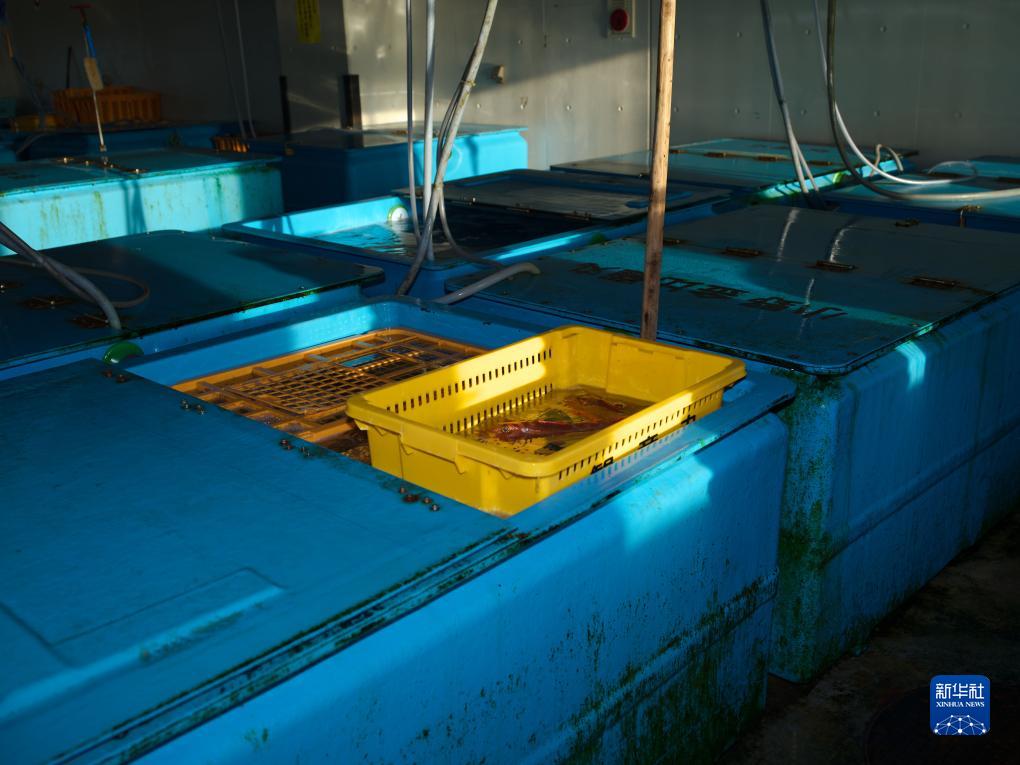
This is the catch stored by Xiao Ye Chunxiong, which was photographed in the fishing port of Shinichi-machi, Fukushima Prefecture on August 23rd. Xinhua News Agency reporter Zhang Xiaoyu photo
When asked if he was worried that the discharge of nuclear polluted water into the sea would further reduce the number of tourists, Rijian Xisheng said that 12 years after the nuclear accident, tourists finally began to increase. "This time, the news (nuclear polluted water discharged into the sea) spread all over the world, and it was Fukushima, and I felt very sad."
In 2015, the Japanese government and Tokyo Electric Power Company promised to the Federation of Fisheries Cooperation Associations in Fukushima Prefecture in the form of documents that "no disposal will be carried out (for nuclear polluted water) without the understanding of relevant parties". Rijian Xisheng said that the government promised the fishermen in Fukushima not to discharge nuclear polluted water without authorization, and now it has decided to discharge it, so the government lied. He stressed that so far, the government has not gained the understanding of the people in Fukushima Prefecture. He showed reporters the data of a poll conducted by local TV stations on the 22nd, showing that more than 70% of Fukushima residents thought that the government’s explanation did not make them better understand the plan of discharging the sea.
On the 23rd, the plaintiff group composed of residents of Fukushima Prefecture, Miyagi Prefecture and Ibaraki Prefecture announced that they would file a lawsuit in the Fukushima District Court, and demanded that the Japanese government and Tokyo Electric Power Company cancel the plan of discharging nuclear polluted water into the sea.
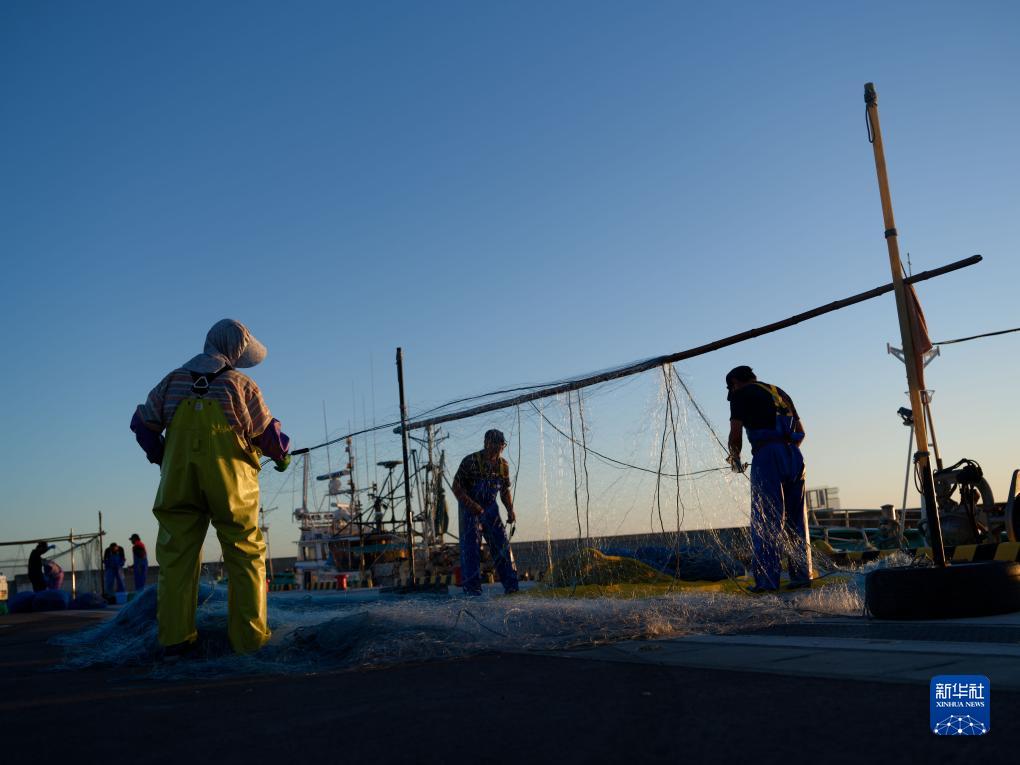
On August 23, fishermen returning from fishing dried their fishing nets at the fishing port of Xindicho, Fukushima Prefecture, Japan. Xinhua News Agency reporter Zhang Xiaoyu photo
The plaintiff and attorney held a press conference in Iwaki on the afternoon of 23rd, and announced the news. In the complaint, the plaintiff pointed out that discharging pollutants into the sea violated the principle that those responsible for pollution should not diffuse pollutants and infringed on the residents’ right to a stable life. The attorney pointed out that the Japanese authorities and the Tokyo Electric Power Company had a major fault in the Fukushima nuclear accident, and now it is a "double harm" to deliberately discharge pollutants into the sea.
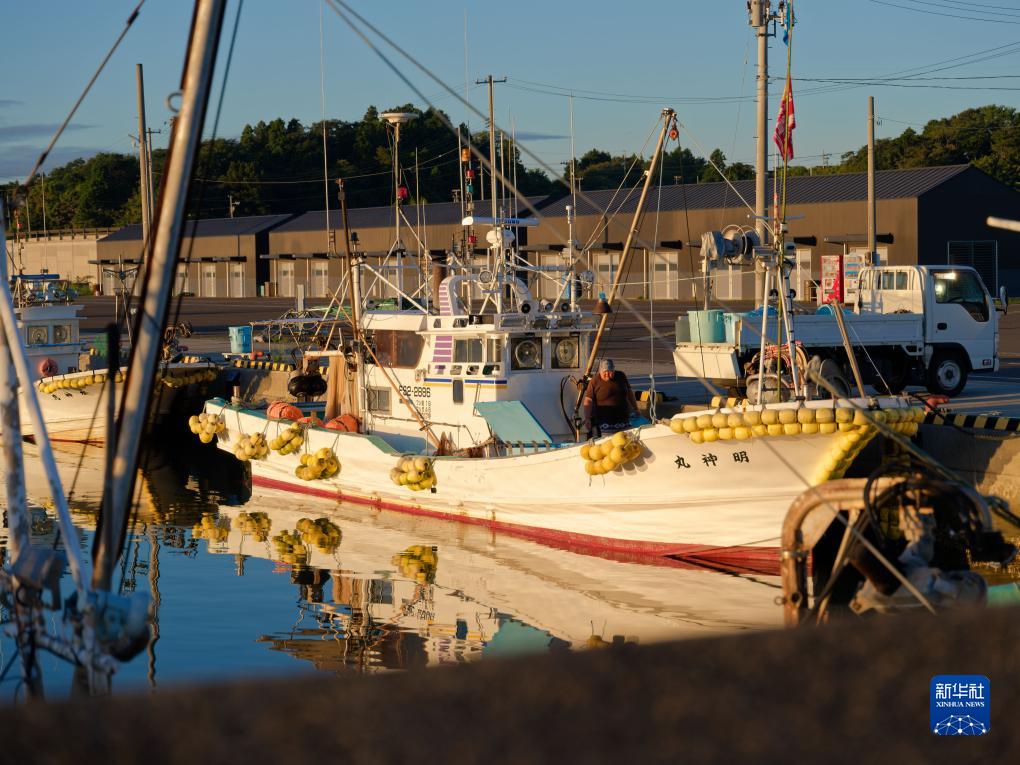
On August 23, fishermen returned from fishing in the fishing port of Shinichi-CHO, Fukushima Prefecture, Japan. Xinhua News Agency reporter Zhang Xiaoyu photo
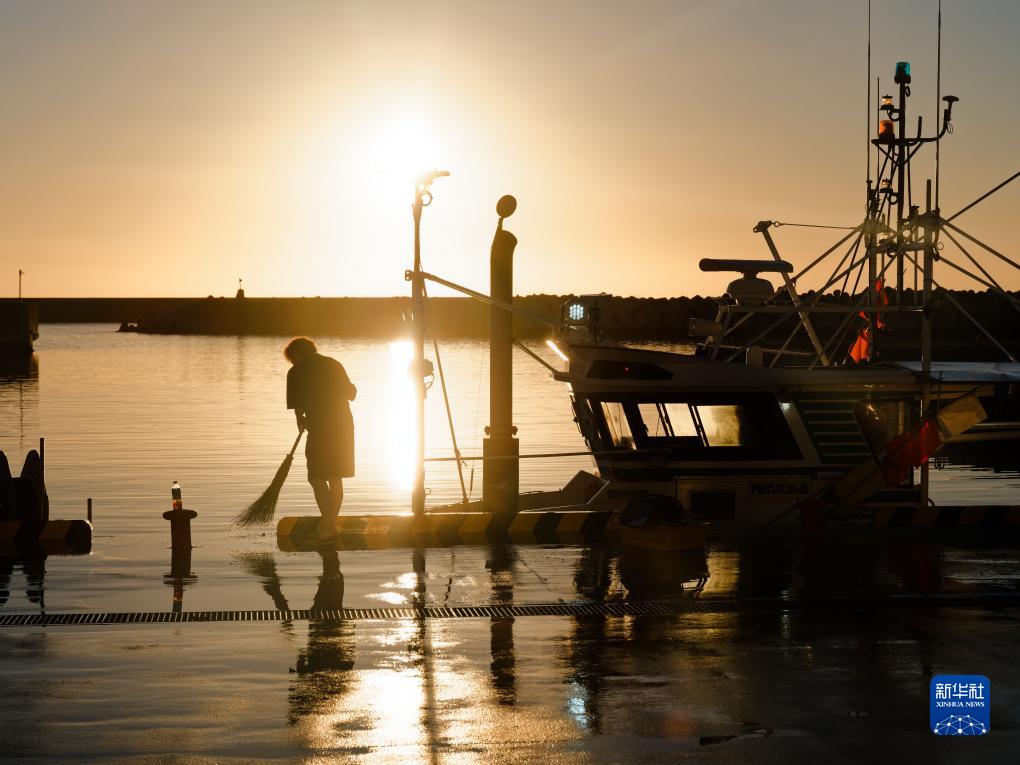
On August 23, fishermen returning from fishing cleaned the fishing port in Shinichi-CHO, Fukushima Prefecture, Japan. Xinhua News Agency reporter Zhang Xiaoyu photo